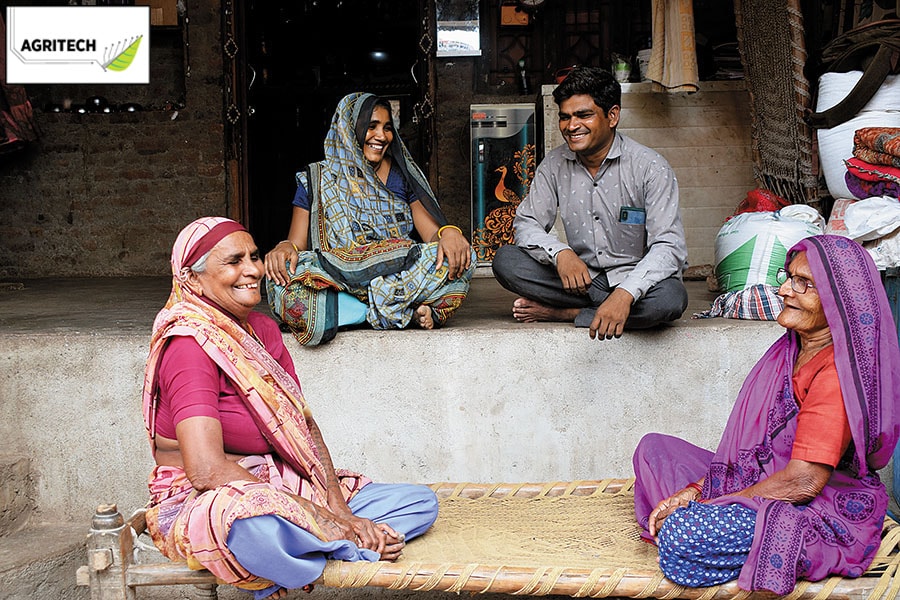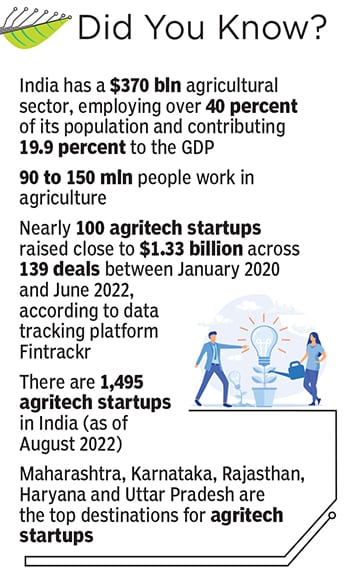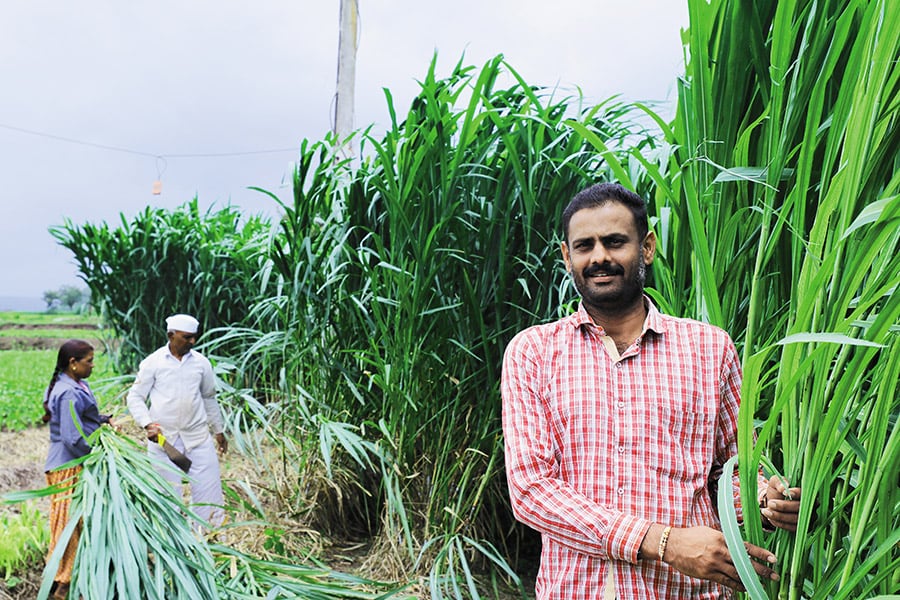
Ground Report: From Gujarat's Botad to Maharashtra's Junnar—impact of agri-tech firms on farmers
While technology is improving produce and farmer income, there are still many deep-rooted problems in the agricultural industry that is leading to crop failure and depleted income for farmers— the need for solutions to these problems will be key for the success of agri-tech startups
 Jivaraj Vasani with his family in Umrala village of Gujarat’s Botad district. Image: Naandika Tripathi
Jivaraj Vasani with his family in Umrala village of Gujarat’s Botad district. Image: Naandika Tripathi
Umrala Village, Gujarat
Light, misty rain and a cool breeze make the drive to Umrala village in Ranpur taluka in Gujarat’s Botad district a pleasant affair despite the patchy roads. As we cross the Bhadar river, we cross farmlands of cotton and groundnut. They are the predominant crops grown in this region, points out Prayag Golakiya, an agronomy manager with agritech firm AgroStar. At the outset, he tells us that Umrala cannot be found on Google Maps; it’s a remote village with about 10,000 people, who are mostly farmers.After a 3-hour drive, we reach the meeting point in the village where we are warmly greeted by Jivaraj Vasani. He asks whether we should directly head to his farm or chat over a cup of tea at his home. We opt for the latter, given the beautiful weather. At his house, we are welcomed by Vasani’s mother. He says the brick-and-mortar house was built only six years ago; prior to that, they lived in a house with a roof made of a thin metal sheet.
In 2005, after Vasani got married, he was given his share of land. To continue his family legacy, he left his job as a diamond craftsman and started farming. At times, however, he still turns into a diamond craftsman when there is less farm work. He lives with his mother, wife and three children. Vasani, 35, mostly grows cotton, and has lately started growing vegetables like cluster beans, okra, corn and more at his farm, which is walking distance from his house.
On almost 80 percent of his 2-acre land, he has sown cotton, which is still in the pre-harvest phase. The rest is occupied mostly by okra, which is in the flowering stage. Vasani has maintained his farm quite well, affirms Golakiya. Usually a lot of farms are filled with weeds, which reduce crop yield. “Using the right and quality products help in conserving the farms, and give the best harvest. I stopped purchasing agriculture inputs from local retail shops ever since I came across AgroStar in 2017,” says Vasani.
Founded in 2013 by Shardul and Sitanshu Sheth, Pune-based AgroStar leverages data and technology to solve farmers’ problems of access to good quality agri-inputs and bridge knowledge gaps. It has now grown into a full-stack platform and provides farm advisory solutions and agri inputs through online and offline channels. It claims to have over 4,000 offline touchpoints in the country.




 “From the early days of setting up a virtual call centre and being the first two agri advisors on our platform to servicing over 10 million farmers, solving their crop- and farm-related problems in near-real time through our advisory centre, our app and brand stores to getting great quality affordable agri-inputs delivered to their doorstep… from working at a time when the term ‘agtech’ did not exist to it being the buzzword today, we have come a long way,” says Shardul.
“From the early days of setting up a virtual call centre and being the first two agri advisors on our platform to servicing over 10 million farmers, solving their crop- and farm-related problems in near-real time through our advisory centre, our app and brand stores to getting great quality affordable agri-inputs delivered to their doorstep… from working at a time when the term ‘agtech’ did not exist to it being the buzzword today, we have come a long way,” says Shardul.

 Bhor claims that after installing the solar pump, he is saving ₹30,000 per year. “Earlier, we used an electric water pump. Due to the uncertainty of electricity, it was not possible to use it whenever required. Plus it would malfunction frequently. These problems are sorted now,” he says. Although there is some relief, Bhor has been facing losses for the past two years. Due to uncertain weather conditions, his crops failed and he couldn’t get a good price from his ready produce of onions.
Bhor claims that after installing the solar pump, he is saving ₹30,000 per year. “Earlier, we used an electric water pump. Due to the uncertainty of electricity, it was not possible to use it whenever required. Plus it would malfunction frequently. These problems are sorted now,” he says. Although there is some relief, Bhor has been facing losses for the past two years. Due to uncertain weather conditions, his crops failed and he couldn’t get a good price from his ready produce of onions.



